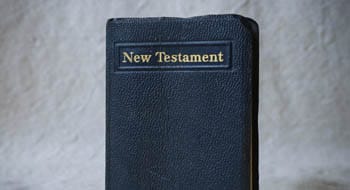Description
Curriculum
Instructor
There are, of course, a number of ways one may approach the study of the Bible: Synthetic—an overview of the Bible as a whole to provide a grasp of the overall message, Analytical—the process of viewing the Bible verse by verse to get an in depth understanding, Topical or Doctrinal—a study of the Bible according to its many topics and doctrines, and…
Curriculum
- 5 Sections
- 15 Lessons
- 10 Weeks
Expand all sectionsCollapse all sections
- INTRODUCTIONThere are, of course, a number of ways one may approach the study of the Bible: Synthetic—an overview of the Bible as a whole to provide a grasp of the overall message, Analytical—the process of viewing the Bible verse by verse to get an in depth understanding, Topical or Doctrinal—a study of the Bible according to its many topics and doctrines, and...1
- THE HISTORICAL BOOKSAs previously mentioned, the New Testament falls into three categories based on their literary makeup—the historical, the epistolary, and the prophetical. The four Gospels make up about 46 percent and the book of Acts raises this to 60 percent. This means 60 percent of the New Testament is directly historical tracing the roots and historical development of Christianity.3
- THE PAULINE EPISTLESHaving finished the survey of the historical books, we now come to the twenty-one epistles of the New Testament, twenty-two if one includes Revelation as an epistle. Because of its unique apocalyptic nature, however, in this survey we are distinguishing it as The Prophetic Book of the New Testament.7
- THE NON-PAULINE EPISTLESWe now come to the final eight epistles of the New Testament canon, seven of which have often been called the General or Catholic Epistles, though Hebrews has been excluded from this description. The term Catholic was used in the sense of general or universal to distinguish them from the Pauline Epistles which were addressed to churches or persons.3
- THE PROPHETIC BOOKWith the book of Revelation, we have the conclusion and consummation of the Bible as God’s revelation to man. As Genesis is the book of beginnings, Revelation is the book of consummation which anticipates the end-time events, the return of the Lord, His end-time reign, and the eternal state.1

Free
100% positive reviews
15 lessons
Language: English
0 quiz
Assessments: Yes


